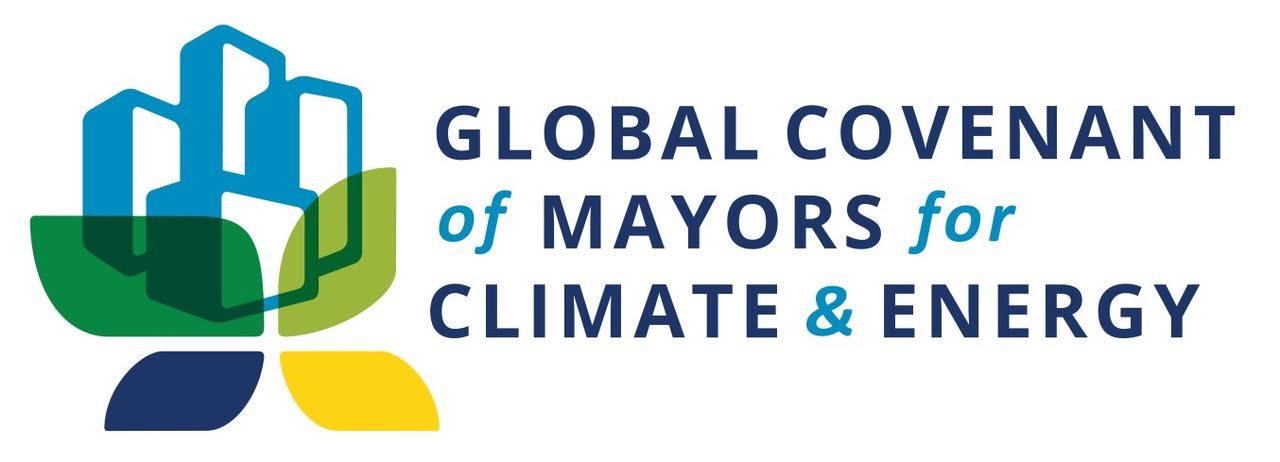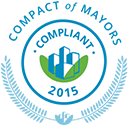- Home
- Reporting entities
- Municipality of Rio de Janeiro
Municipality of Rio de Janeiro
Brazil Mayor: Eduardo da Costa Paes-
Population 6429923

-
Area 1224.0km 2
-
GDP 93 MillionBRL
-
Targets by N/A N/Aemission
Targets by Municipality of Rio de Janeiro
There are no targets yet
- Start year: 2013
- Type: Climate mitigation plan
- Start year: 2008
- Type: Policy/Strategies/Action Plans
- Status: In operation
The goal is to gradually reduce the deforestation of vegetation category named "Forest" in the city, until the percentage of 80% in 2020 (following the guideline of the National Plan on Climate Change - NPCC). This percentage is calculated on the amount cleared in 2005 (420 ha), ie, avoided deforestation by 2020 will be 336 ha, and 84 ha will continue to be deforested. Between 2020 and 2025, the area to be cleared will continue at the same level of 84 ha / year.
Read More Read Less- Agriculture, Forest and Other Land Use (AFOLU)
- Start year: 2010
- Type: Technical/Infrastructure investment
- Status: In operation
Solid waste when grounded, generate biogas. The usual practice is to collect in landfills and burn a small part of this biogas for safety, mainly for fire prevention in the waste disposal site. The remainder of the biogas is drained through the landfill and is emitted to the atmosphere. So one of the ways to reduce methane emissions is the correct capture of the biogas for burning in flairs. When burned, methane turns into CO2 and reduces emissions because methane has a heating power 21 times greater than carbon dioxide.
Read More Read Less- Industrial processes and product use (IPPU)
- Start year: 2009
- Type: Organizational / Governance
- Status: Completed
Local Stakeholder Forum on Climate Change and Sustainable Development
Read More Read Less- Residential
- Commercial
- Industrial
- Agriculture, Forest and Other Land Use (AFOLU)
- Industrial processes and product use (IPPU)
- Other Emissions

- Start year:
- Type: Regulatory
- Status: Completed
Rio de Janeiro is the only state in the nation that has deployed the Inspection and Maintenance of Vehicles in Use (I/M Program) in 1997. It was deployed initially in the metropolitan area of Rio de Janeiro, was expanded after totaling 44 posts. The I/M program encourages proper maintenance of vehicles and discourages tampering with emissions control devices, contributing to improved air quality and fuel economy. In short, it aims to maintain emissions approved at licensing of the vehicle within the established environmental standards.
Read More Read Less- Transport
- Start year: 2011
- Type: Technical/Infrastructure investment
- Status: In operation
The project, an initiative of the City, in a partnership between the Municipal Secretary of Environment, the Municipal Secretary of Conservation and Public Utilities and Comlurb, aims the production of fractions of high quality compost reducing the amount of final waste that goes to landfills. Compost is a natural fertilizer, which helps enrich the soil humus and increases its biological activity. The compound should be used in the reforestation of the city, within the Reforestation Program and Preservation of the municipality slopes.
Read More Read Less- Start year: 1997
- Type: Technical/Infrastructure investment
- Status: In operation
Much of piping gas from Rio de Janeiro was very old and therefore the need for renewal of the networks. This work has been carried out since 1997 and invested more than U.S. $ 424 million in the replacement of 692 km of network. The Company uses the latest technology, using polyethylene pipe; equipment adopted by most of the gas distribution companies in the world to be of better quality and greater flexibility, and enables increased supply capacity and allow for occasional maintenance. The replacement of the cast iron network by polyethylene pipes for distribution of natural gas by CEG in Rio de Janeiro is a project to reduce GHG emissions under the Clean Development Mechanism of the Kyoto Protocol.
Read More Read Less- Commercial
- Start year: 2012
- Type: Policy/Strategies/Action Plans
- Status: In operation
The Bike Rio program seeks to conserve and expand the
city’s bicycle paths as well as connect them to other transport
systems. Guard and loan stations will be installed and
an additional 150 kms of bike paths will double the network.
A new 2013-2016 strategic plan calls for yet another
150 km of bike paths with a goal of 450 km total by the
2016 Olympiad.
Participating organizations: SMAC – Secretaria Municipal DE
Meio Ambiente; CET-RI; IPP – Instituto Municipal de Urbanismo
Pereira Passos
- Transport

- Start year: 2013
- Type: Technical/Infrastructure investment
- Status: In operation
Line with the concept of sustainability sought for the city as a whole, and cognizant of the common features of public buildings, where the technological standard systems usually do not incorporate aspects related to efficiency and where the management standard of administration rarely has procedures to control expenses and improve education consumption, the City also turns to the evaluation of its seat, trying to identify technical and managerial low cost measures resulting in a higher efficiency of the building. The overall goal of the diagnosis is the mapping of the current situation of efficiency and sustainability of the building focusing in alignment with sustainability, seeking a balance of the building and the significant reduction in operating costs and maintenance.
Read More Read Less
- Start year: 2011
- Type: Technical/Infrastructure investment
- Status: In operation
The project consists in promoting the encouragement of cycling as a mode of transport for short distances, mainly because it is 100% non-polluting and also contributes to a significant reduction in emissions of greenhouse gases. Since the beginning of the project, in four years the bike path was expanded from 150 km (2009) to 305 km today and will reach 450 km by 2016. Only this year will be offered over 1,000 new bike parking spaces. Another important point was the implementation of the Rio Bike, a bike rental system that currently offers more than 60 stations with 600 bikes available.
Read More Read Less- Transport
- Start year: 2011
- Type: Technical/Infrastructure investment
- Status: In operation
The Metro Line 4 of the City of Rio de Janeiro will carry more than 300,000 people a day and remove from the streets around 2000 vehicles per hour. Initiated in June 2010, the works will be completed in December 2015. 36 connection possibilities were analyzed by technicians to find the path that best fit the user: there will be six new stations and 16 kilometers long. From 2012, there will be new trains and, by 2016, there will be 66 in operation, more than double of what is now.
Read More Read Less- Transport
- Start year: 2010
- Type: Technical/Infrastructure investment
- Status: In operation
It is a system that provides fast urban mobility, comfortable and cost-efficient, thanks to a circulation space with exclusive right of way, rapid and frequent operations, with marketing service geared to the user. This bus system integrates a series of physical and operational elements that were unique to the subways. Besides gaining more speed, traveling in a separate pathway, BRT is considered a mass transportation. Depending on the project, it carries almost the same number of passengers of a subway system, but it costs about twenty times less.
Read More Read Less- Transport
- Start year: 2011
- Type: Policy/Strategies/Action Plans
- Status: Completed
Action Plan for Reduction of Greenhouse Gas Emissions in the City of Rio de Janeiro
Read More Read Less- Residential
- Commercial
- Industrial
- Agriculture, Forest and Other Land Use (AFOLU)
- Industrial processes and product use (IPPU)
- Other Emissions

- Start year: 2009
- Type: Technical/Infrastructure investment
- Status: In operation
The Cedae has put into operation the Marine Outfall in 2007 and Sewage Treatment Plant of Barra da Tijuca, in 2009, and the last five years has opened 15 large Sewage Pumping Stations in the region. The company made the connection with these lifts almost all the waterfront properties in Barra da Tijuca (85%), much of Recreio (70%) and lowered the studied area (60%), treating their waste and giving destination appropriate through the Marine Outfall Barra da Tijuca. 100% of the waste produced in the region were still thrown in rivers and canals, arriving in natura at the lagoon system in the region.
Read More Read Less- Start year: 1986
- Type: Policy/Strategies/Action Plans
- Status: In operation
The Reforestation Effort Program, active since 1987, has promoted reforestation of hillsides and mangrove of the City of Rio de Janeiro. The three main objectives of the Reforestation Effort Program are: the restoration of degraded natural environments, the restoration of forest cover in the municipality and the expansion of the labor supply through the direct participation of poor communities benefited. Approximately 2,500 hectares were reforested by 2007, benefiting approximately 300,000 people. The total number of tree seedlings planted in more than 20 years of the Reforestation Effort Program exceeds five million.
Read More Read Less- Agriculture, Forest and Other Land Use (AFOLU)
- Start year: 2011
- Type: Policy/Strategies/Action Plans
- Status: In operation
The Expanded Program of Selective Waste Collection in the City of Rio de Janeiro, launched on March 24, 2011, with investments of U.S. $ 50 million by BNDES will lead selective waste collection to all neighborhoods in Rio. In this program all solid waste of the city go to the Waste Treatment Center in Seropédica. As part of the program, will be constructed six sorting centers in center, north and west areas to receive the separated material selected by the population and collected by Comlurb. Waste pickers make the separation of the different types of recyclable waste and product commercialization.
Read More Read Less- Start year: 2011
- Type: Policy/Strategies/Action Plans
- Status: Completed
Municipal Policy on Climate Change and Sustainable Development
Read More Read Less- Residential
- Commercial
- Industrial
- Agriculture, Forest and Other Land Use (AFOLU)
- Industrial processes and product use (IPPU)
- Other Emissions

- Start year:
- Type: Regulatory
- Status: Completed
A forum attended by 22 of Brazil’s 27 state capital environmental
ministers. Over the course of two days, they debated
propositions and solutions for their respective cities’
major environmental problems. Several success stories were
presented, touching on reforestation, waste management,
urban mobility, and other issues, leading to the Rio Sustainability
Declaration, later presented at the Rio+20 Mayors
Summit and the Rio+C40 meeting, a principal debate forum
for cities at the Rio+20 United Nations Conference on
Sustainable Development held in June 2012.
Participating organizations: Gerência de Mudanças Climáticas/
SMAC – Secretaria Municipal DE Meio Ambiente; Konrad
Adenauer Stiftung
- Other Emissions

- Start year: 2011
- Type: Technical/Infrastructure investment
- Status: Completed
The BRS is a system of exclusive lanes for buses that in less than a year of gradual deployment got 85% popular approval. With the rationalization of the lines, and buses using exclusive track, traffic has improved, and the citizen can cross the neighborhood by bus, at a time 40% smaller. The time for cars and taxis is further reduced.
Read More Read Less- Transport
- Start year: 2010
- Type: Policy/Strategies/Action Plans
- Status: Completed
The Rio Operations Center integrates 30 agencies that monitor 24 hours a day, the life of the city. Here are integrated into all stages of a crisis management from the anticipation, preparation and reduction, to the immediate response to events such as heavy rains, landslides and traffic accidents. In addition to real-time information from dealers and organs pubic Operations Center captures images from 560 cameras installed throughout the city. All data are interconnected for viewing, monitoring and analyzing the control room, in a screen of 80 square meters. The process allows acting in real time decision making and problem solving.
Read More Read Less- Human health
- Start year: 2012
- Type: Assessment/Research
- Status: In operation
This research allows climate risks to be incorporated into
municipal planning, providing the city with necessary tools
to identify and reduce social/environmental/health vulnerabilities.
A principal objective is to bridge the gap between
research and public health services through multi-institutional
networking and innovative spatial-information technology
tools.
Participating organizations: Gerência de Mudanças Climáticas/
SMAC – Secretaria Municipal DE Meio Ambiente; Ministério
da Saúde; FIOCRUZ – Fundação Oswaldo Cruz
- Human health

- Start year: 2013
- Type: Policy/Strategies/Action Plans
- Status: In operation
Planning for a resilient city involves the engagement of a wide range of stakeholders, including civil society, local and national governments and the private sector. Note that the cities of the developing countries will be proportionately more affected, depending on the demographic and cultural profile of the population, the absence or disability of urban infrastructure and planning. The main objective of the project is to provide support to the preparation of the Climate Change Adaptation and Resilience Plan of the Rio de Janeiro City. Adapting cities to climate change is relevant thematic in the Climate Change Municipal Policy of Rio de Janeiro (Law N ° 5248/2011).
Read More Read Less
- Start year: 2010
- Type: Policy/Strategies/Action Plans
- Status: In operation
The Emergency Plan is the result of an interinstitutional and multidisciplinary work that embodies a strategic framework. The Plan identifies community, state and federal organizations, headquartered in the city, organized segments of society and Civil Defense Corps Community - NUDEC, defining their duties and responsibilities, procedures, resources and communication channels. Thus, the Municipality of Rio de Janeiro, in conjunction with other organizations of Government and Civil Society, has worked extensively in the search for resilience to heavy and/or prolonged rains. Technology integration, community mobilization, training, institutional strengthening are involved in this sense.
Read More Read Less- Human health
The Municipality of Rio de Janeiro has reported 3 Community emission inventories, since 2005. In its latest inventory, compiled in 2012, the Industrial process and product use, Waste management, Agriculture, forest and other land use and Agriculture, forest and other land use are identified as key emission sources.
The Municipality of Rio de Janeiro has reported 2 government operational inventories, since 2012. In its latest inventory, compiled in 2012, the Waste management is identified as key emission source.
Mayor Eduardo da Costa PaesMunicipality of Rio de Janeiro, Brazil





